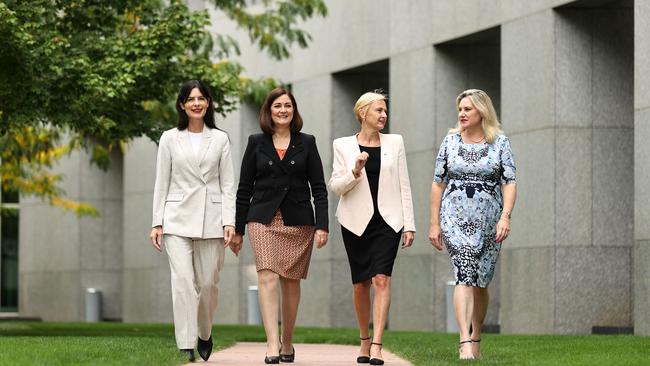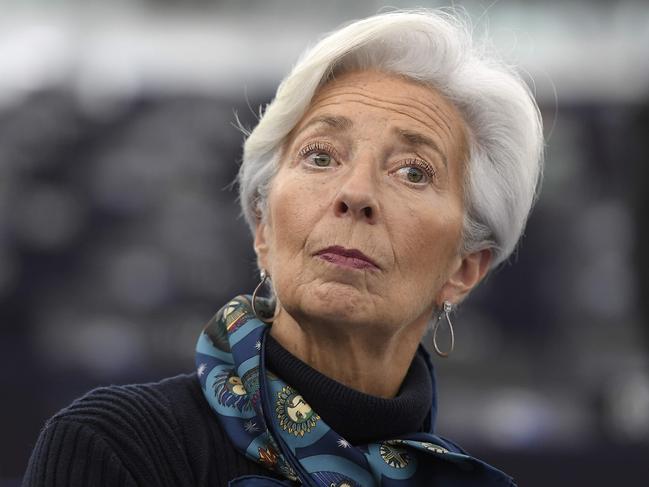
In that vein, let me posit that the Liberal Party is going to need more convincing reasons for quotas than the ones advocated on this page on Monday by Cristina Talacko.

The vice-president of the NSW Liberal Women’s Council put forward some curious, and disturbing, reasons for quotas. The most dangerous proposition is that we need quotas to get more women into parliament because women are innately different to men. Women are “usually more empathetic and more giving”, “less motivated by profit and more motivated by passion, genuinely caring about people, our community, the environment and its effect on health and wellbeing”, wrote Talacko.If that is true, Mother Teresa wasn’t anything special. Turns out every female in Australia, all 12.5 million of them, could give Calcutta’s little saint a run for her money.
Apart from being akin to sweeping, sexist generalisations that we would flay a man alive for making, this Pandora’s box needs careful thought. Once you propose differences between the sexes to justify quotas, intellectual honesty demands you recognise the flip side: innate differences may militate against quotas.
If women are different from men, perhaps fewer women are interested in a career in politics. Maybe more women than men prefer to stay home and care for children rather than spend weeks away in Canberra. If that is the case, it dismantles more of Talacko’s claims for quotas.
It utterly destroys her idea that a “better democracy” is one where women constitute 50 per cent of seats in parliament because that reflects the gender split in the community.
How does it improve democracy to demand women have the same representation as men if the pool of available female candidates is much smaller? This may be a terrific leg-up for a few ambitious Liberal women, but does it enhance the quality of representation to demand that women fill the same number of spots from a proportionally smaller number of candidates?
Also, if women’s innately different traits mean they may prefer different careers, say nursing or teaching or other so-called caring professions, over politics, it renders Talacko’s argument that quotas are not unfair for men illogical.
A numerate person may test her thesis this way. If we accept Talacko’s arguments about inherent differences, what if only 10 per cent of women are interested in politics but 30 per cent of men are drawn to it? If 10 per cent of women are competing for 50 per cent of seats in parliament while 30 per cent of men must fight for the remaining 50 per cent, that is patently unfair on men. Notice the winners: the smaller number of women eager to become quota appointments to secure a political career.
There is a darker side to the gendered niceness put forward by the NSW Liberal Party’s quota activist. While there is undoubtedly evidence that many women may value things differently to men and may make different choices, great care needs to be taken about how this is used and where it may lead. Next you may find men telling us that men are better than women at maths and science, that men are more logical, better at directions and coding and other such endeavours.
Recognise differences, by all means. But once you argue one sex is better than the other to justify the makeup of power structures, you take a sinister turn for both sexes.
Feminists who fought for women to have the vote didn’t argue women would make better decisions. Were that the case, feminists should have demanded we take the vote away from men. Our more sensible and logical feminist forebears demanded equal rights and equal opportunities. What women did with those rights and opportunities was a matter for them.
If we truly believe Talacko’s idea that women are superior to men, why settle for 50-50 representation in parliament? Be more ambitious for humanity, aim for 70 per cent, 100 per cent women given that the male sex is less empathetic, less giving, more motivated by profit, less motivated by passion, less caring about people, our community, the environment and its effect on health and wellbeing.
Modern liberal societies are predicated on a handful of fundamentally empowering ideas.
One is that every person is born equal under the law and should be offered equal opportunities to flourish. Some people will excel at sport, at politics, become innovating entrepreneurs or musical geniuses. Some will seek power and money. Others will happily settle for a job, a family and a round of tennis on the weekend.
Gender determinism is hardly new and always wrong. It has been promoted by everyone from Barack Obama, who said women were “indisputably better” than men, to then International Monetary Fund president Christine Lagarde, who famously said “if it had been Lehman Sisters rather than Lehman Brothers, the world might well look a lot different today.”

Every time we get a whiff of this baloney, the marketplace of ideas should kick into action to remind women to be very careful what they wish.
Yes, people are different. But the moment we use difference on the basis of sex to cement structural determinism into our body politic, we stop being a liberal society that believes in the essential worth and dignity of every individual.
If structures or attitudes stand in the way of offering equal opportunities to women and men, then work harder to address those issues rather than introducing a set of ideas about women that will be very bad for us. Quotas aren’t just lazy, they are dangerous.
It is good news that the Liberal Party is divided over quotas. What has become a condescending article of faith for Labor should be challenged with clear-headed logic in the Liberal Party.
On that score, Liberals will need a stronger list of reasons to support quotas than ones so easily demolished by a Year Eight school debating team.





It is good there is a debate in the Liberal Party about quotas as a way to get more women into parliament. Whether you agree with gender quotas or not, once your position becomes an article of faith rather than a matter of logic, it shows the need for a more rigorous debate to keep testing the idea.